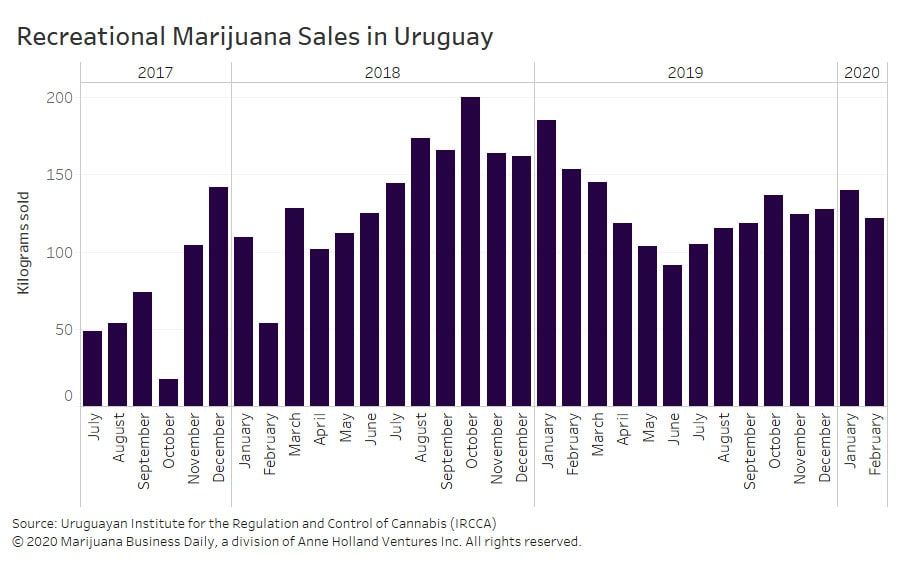Just under 4,000 kilograms (8,800 pounds) of recreational marijuana was sold via Uruguay’s pharmacies since the program was launched in July 2017, according to a recent report from the Institute for the Regulation and Control of Cannabis (IRCCA).
A little more than half the recreational marijuana sold in pharmacies took place in Montevideo, the capital of the country and home to about 40% of Uruguay’s population.
The retail price, fixed at 53 Uruguayan pesos ($1.23) per gram of flower, was last updated by the government in February. Producers receive about 70% of it and the rest goes mostly to the retail pharmacy. A small amount goes to the regulator.
As of April 15, the IRCCA notes:
- 41,143 consumers were registered to buy up to 10 grams of cannabis per week in 17 pharmacies – the only legal points of sale for adult-use marijuana.
- 8,215 home growers can produce up to six cannabis plants and harvest up to 480 grams per year.
- 4,746 members of 158 clubs where collective cannabis growing is allowed may produce a maximum supply of 480 grams per member per year.
Those mutually exclusive channels are the only legal ways to access nonmedical cannabis. (That means registered pharmacy consumers cannot also be registered home growers, for example.)
In recent months, an average of about 8,000 users purchased marijuana at least once per month at a pharmacy. That’s around 20% of the 41,143 consumers who are registered, which means the remainder did not buy a single gram in the regulated market.
Average purchases amounted to roughly 15 grams per month – much less than the 40-gram monthly limit.
The IRCCA report points out that “supply still can’t meet demand.”
Recreational marijuana has been supplied by only two licensed producers:
- ICC Labs, which was acquired in 2018 for 290 million Canadian dollars ($207 million) by Alberta-based Aurora Cannabis.
- Simbiosys.
Combined, the two companies have been able to produce 3,865 kilograms of dried cannabis through February 2020, which translates to only 121 kilograms per month on average since sales started. That’s just 36% of up to 2,000 kilograms per year that each company was expected to produce when they were contracted by the government.
Recently granted new licenses to grow recreational cannabis are expected to solve the supply problem once the new flower becomes available.
Currently, there are only two plain-packaged recreational strains available in pharmacies – and those are capped at 9% THC.
Alfredo Pascual can be reached at alfredop@mjbizdaily.com





